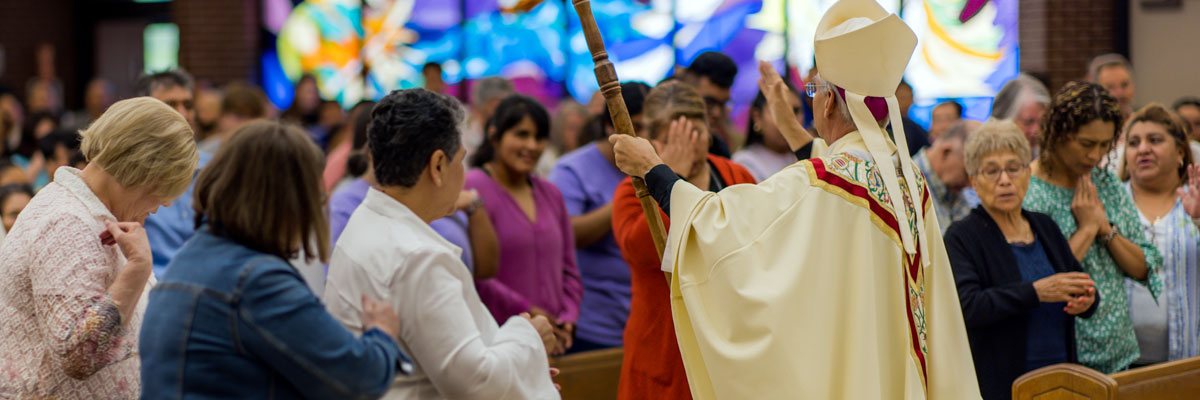Official Website of the
Catholic Diocese of Little Rock
Ash Wednesday 2016
Published: February 10, 2016
Bishop Anthony B. Taylor preached the following homily at St. John Catholic Center and the Cathedral of St. Andrew, both in Little Rock, on Wednesday, Feb. 10, 2016.

Bishop Taylor
One of the constant themes in the Gospel of Matthew is to accentuate how Jesus takes previous religious practices that had become routine and gives them new meaning, employing them to lead us to a deeper relationship with God.
So there is continuity with the past along with its fulfillment in the new kingdom that he has come to establish. In the passage leading up to today’s Gospel we find the constant refrain: “You have heard it said ... but I say to you ...” Do not kill? Don’t even get angry! Do not commit adultery? Don’t even look at a woman with lust! Do not give false testimony? Don’t even swear at all! Love your enemies, "be perfect just as your heavenly Father is perfect.”
Now in today’s Gospel with which we begin the season of Lent, Jesus makes the same point regarding acts of piety, giving new meaning to the practices of almsgiving, prayer and fasting. Jesus does not revoke or even modify these practices mandated by God in the Old Testament.
"So as we begin this Lent, let us recall not only our mortality symbolized by the ashes placed on our foreheads, but also our share in Jesus’ work of transforming of the world, building the kingdom of God in communion with Jesus and in communion with our fellow human beings."
What he does is give them deeper meaning, saying that our observance of these practices should arise out of — and at the same time serve to foster — an ever deepening relationship with God.
So God commands almsgiving not merely to help the poor financially, but also to establish a human bond between us and the poor, communion with the poor such that they are no longer “other” and that we begin really to care about them, just as their heavenly Father cares about them.
He commands prayer not merely to remind us that he is God and we are dependent on him for everything and better not forget it, but also to establish a personal connection — communion — with God such that he is no longer “other” but rather truly felt to be our Father and we his sons and daughters whom he loves so much that he will sacrifice everything for us, even his own son.
And he commands fasting not merely as an ascetic practice, but rather to foster in us that self-mastery that we will need to prevail when Satan puts our faithfulness to the test.
Jesus calls certain people who observe the religious practices of almsgiving, prayer and fasting hypocrites when their observance does not arise out of an authentic relationship with God but only so that they will feel good about themselves and look good in the eyes of others.
Such practices are sterile if we do not do them out of an awareness that we are sons and daughters of God, and as such undertake acts of charity, prayer and self-sacrifice in order to align ourselves with the transformation that God is now working in our world through the redemptive work of Jesus Christ.
So as we begin this Lent, let us recall not only our mortality symbolized by the ashes placed on our foreheads, but also our share in Jesus’ work of transforming of the world, building the kingdom of God in communion with Jesus and in communion with our fellow human beings.
We do this in communion with the poor through almsgiving, we do this in communion with God the Father through prayer and we draw on God’s strength for our struggle against the power of evil — our own sin and the evil in the world around us — through fasting.
May our Lenten devotions these 40 days serve to unite us more fully with Jesus now, increasing our resolve to collaborate with his ongoing work of redemption in today’s world now, embracing the crosses that this will entail, confident that we who remain faithful to him in the struggle will also share in his victory.









